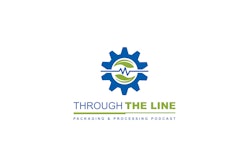
This content was written and submitted by the supplier. It has only been modified to comply with this publication’s space and style.
Industrial waste and carbon black production collectively drive millions of tons of pollutants into the air, water, and soil each year—but Living Ink, recognizing the urgency to address these environmental challenges, has secured a $3 million investment to advance its scalable, environmentally sustainable solutions across diverse industries.
This funding will enable Living Ink to replace conventional, petroleum-derived carbon black — a ingredient in everyday products like inks, paints, asphalt, cosmetics, fabric and plastics — by transforming algae and other biomass waste into their carbon-negative, renewable Algae Black pigment. This process not only repurposes and diverts waste away from landfills but also reduces brands’ reliance on pollutive supply chain processes.
Additionally, the raise supports the company's strategic expansion into new starting biomass feedstocks within their current process and the construction of an on-site pilot production facility designed for future deployment at targeted biowaste production sites across North America. This facility will demonstrate the critical role of vertical integration and new, low-cost feedstock acquisition in achieving price parity for Living Ink’s black pigments. The pilot facility will establish a reliable domestic supply chain of waste biomass, enabling the company to scale production to meet industry demands.
"Evergreen Climate Innovations is excited to be a part of Living Ink’s round alongside a distinguished group of investors. The company’s carbon-negative, bio-based inks and pigments offer a cost-competitive option for consumer brands seeking to reduce the carbon footprint of their products and packaging. We have very high confidence in the impressive and talented Living Ink team and look forward to supporting them on their next phase of growth, ” said Evergreen Managing Director, Paul Seidler.
By processing waste feedstocks on-site, this integrated approach will reduce costs, offering brands and manufacturers a more affordable path to adopt Algae Ink throughout their supply chains, while reinforcing Living Ink’s commitment to sustainable innovation. This development stage will pave the way for future global biomass sourcing and co-location (or near-location) of production facilities with biomass suppliers, further minimizing shipping and production expenses and emissions.
This investment enables Living Ink's feedstock-agnostic approach, addressing biological waste disposal challenges across numerous industries. The company will now integrate diverse biomass waste inputs from sectors including food and beverage, precision fermentation, anaerobic digestion, and algae cultivation and disposal. This funding will accelerate the development and integration of alternative feedstocks, reducing costs for customers and expanding Living Ink's innovative product range available to brands and their manufacturers.
Recently, Living Ink was also accepted into Cohort 6 of the 100+ Accelerator led by ABinBev and other global partners Coca-Cola, Danone, Colgate-Palmolive, and Unilever. Through the 100+ Accelerator, Living Ink is collaborating with AB InBev to transform AB InBev's waste biomass into sustainable Algae Black pigments. This initiative, backed by accelerator funding, will expedite the development of this innovative process, while also demonstrating the technology at pilot scale.
“LivingInk is revolutionizing sustainable materials with its groundbreaking algae-based ink technology. Their commitment to innovation and eco-friendly solutions aligns perfectly with our vision for investing in companies that will shape the future,” said John Soukas, CEO and Co-founder at Norfolk Green Ventures.
“We’re excited to have successfully completed our fundraising and to welcome an incredible group of investors who bring valuable expertise to our journey toward global scale. After years of developing our idea, intellectual property, and product, we’re now focused on driving down costs and demonstrating market impact,” said Scott Fulbright, Living Ink Technologies CEO & Co-founder.
























